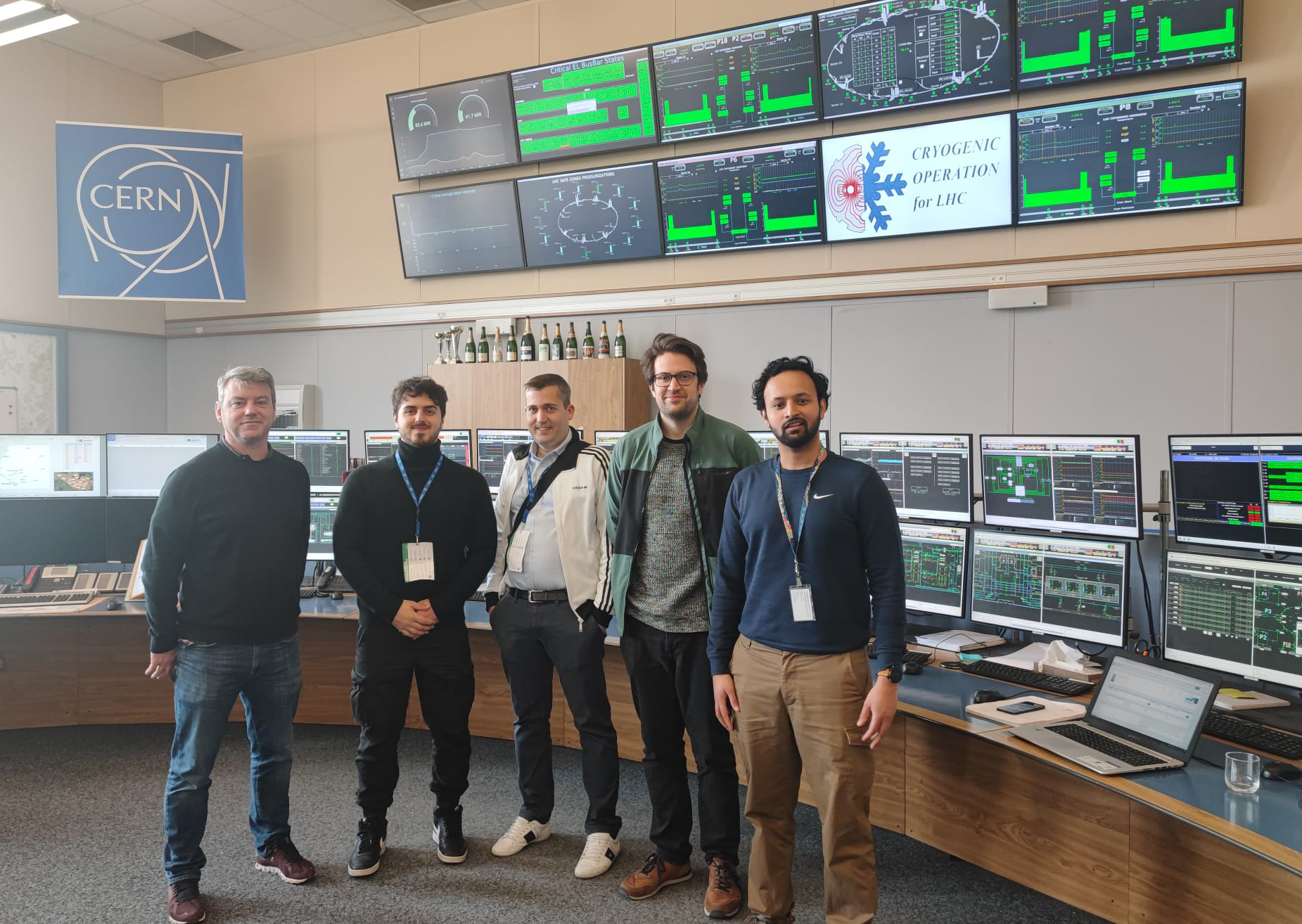Project Goal
The project aims to enhance the efficiency, reliability, and intelligence of the industrial control systems used within CERN’s accelerator complex. A primary objective is to develop a scalable device monitoring solution by creating a web-based application prototype that leverages edge computing technologies and real-time data analytics to monitor control devices. Additionally, the project seeks to assess and adapt Siemens’ industrial solutions to meet the specific operational needs of CERN. Another significant goal is to explore and evaluate the potential of open-source Large Language Models (LLMs) for applications in control systems, aiming to enhance engineering task automation, troubleshooting, and decision-making processes.
Background
The upcoming High-Luminosity LHC (HL-LHC) upgrade is poised to increase the particle collision data sample by a factor of ten compared to the current LHC program. This significant enhancement will inevitably lead to increased complexity in the associated control systems. Consequently, improving the functionality and scalability of these systems is essential to meet future operational demands. This task involves several interconnected initiatives. One subproject focuses on developing a robust device monitoring platform to manage the hardware components of industrial control systems. This platform will utilize edge computing technologies and real-time data analytics to ensure reliability. Another key subproject involves evaluating open-source Large Language Models (LLMs) for potential applications in control systems. The goal is to explore how LLMs can enhance task automation, streamline diagnostics, and assist decision-making processes.
Progress in 2024
In 2024, several key milestones were accomplished in the project. A functional prototype of the web application for Device Monitoring was developed at CERN, featuring both frontend and backend components. The front end enables end-users to configure and organize control devices into a hierarchical, tree-like structure while allowing them to design logical rules for individual categories or tree nodes. These rules are executed in real-time, playing a vital role in hierarchically displaying the status of the entire control system. This real-time visualization simplifies navigation and enables quick identification of system errors. The backend component was designed to handle rule execution efficiently. The application also supports third-party integrations, including compatibility with Siemens’ device monitoring solutions, such as Machine Insight. Additionally, as part of another subproject, we explored continual pre-training of Large Language Models (LLMs) to acquire domain-specific knowledge from industrial control documentation. A prototype benchmarking suite was also developed to evaluate various LLMs on standardized datasets.
Next Steps
The project is set to continue in the coming years, with certain subprojects potentially shifting to new focus areas based on priorities determined in collaboration with Siemens. These focus areas may include the exploration of virtual Programmable Logic Controllers (PLCs) deployable on industrial edge devices, the study of predictive maintenance solutions for control devices using historical data, and the investigation of small language models for targeted industrial applications. A workshop between CERN and Siemens is planned to refine specific use cases and define objectives for the years ahead.
Project Coordinator: Fernando Varela Rodriguez
Technical Team: Abhit Patil, Fernando Varela Rodriguez, Jeronimo Ortola Vidal
Siemens AG Collaboration Liaisons: Silvio Becher, Christian Kern, Stefan Langer
In partnership with: Siemens

